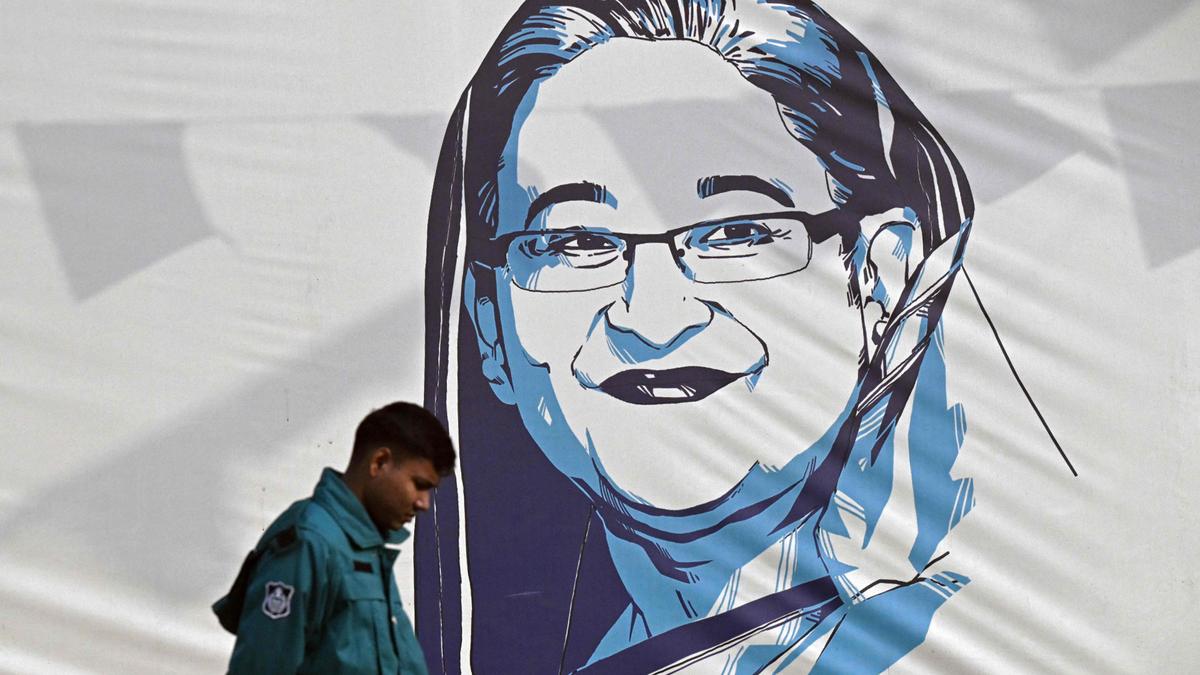The recent wave of student protests in Bangladesh against the quota system in government jobs has escalated into a political crisis, leading to the resignation of Prime Minister Sheikh Hasina and the filing of numerous criminal cases against her. The unrest, which began in mid-July, has resulted in over 600 deaths, including the deaths of two BNP activists, Zulkar Hossain and Anjana, and a 22-year-old man who was shot dead during a protest in Munshiganj. These deaths have further fueled the political tension in the country, adding to the mounting pressure on the former Prime Minister.
The Aftermath of the Protests: Legal Ramifications
The protests against the quota system, initially a student-led movement, quickly spiraled into widespread chaos, leading to a political standoff between the ruling Awami League and the opposition Bangladesh Nationalist Party (BNP). Following the widespread violence and subsequent resignation of Prime Minister Hasina, the legal system in Bangladesh has seen a surge in criminal cases targeting her and her former cabinet ministers.
Criminal Charges Against Sheikh Hasina and Her Allies
The latest round of criminal charges, including murder accusations, adds to the existing 84 cases filed against Hasina. The cases range from charges of murder, crimes against humanity and genocide, alleged abduction, and other offenses. The specific cases filed include:
- Case 1: A case filed in Kishoreganj by BNP activist Matiur Rahman accuses Hasina, along with former ministers and party members, of the murders of fellow BNP activists Zulkar Hossain and Anjana. The accusations claim that a procession of student activists and BNP supporters were attacked by Awami League members who used firearms, batons, and sharp weapons. The case further alleges that Hossain and Anjana were confined and subsequently killed by the attackers in the home of an Awami League leader.
- Case 2: In Munshiganj, a case has been filed accusing Hasina, former transport minister Obaidul Quader, and other Awami League leaders of the murder of a 22-year-old man during a protest in the Supermarket area of the town.
- Case 3: A separate case in Gazipur accuses Hasina and 56 others of causing the loss of vision in an 18-year-old college student who was shot in the eye during a protest. The case alleges that the shooting occurred at the order of Hasina and her associates.
These accusations demonstrate the growing political pressure on Hasina, further escalating the existing political tensions within Bangladesh. The relentless pursuit of legal charges against the former Prime Minister raises questions about the fairness and transparency of the legal process, particularly during this period of political instability.
Political Landscape in Bangladesh
The unrest and violence fueled by the quota protest movement has created a fragile political environment. While an interim government has taken over, with Nobel laureate Muhammad Yunus appointed as Chief Adviser, the legal and political landscape remains uncertain.
Impact on the Political Dynamics
The current political landscape in Bangladesh is characterized by heightened tensions between the ruling Awami League and the BNP. The events leading up to Hasina’s resignation, the ongoing violence, and the numerous charges filed against her indicate the fragility of the existing political system and the potential for further instability.
The legal charges against Hasina, especially those pertaining to murder, could trigger a power shift, as her supporters could resort to counter-protests or further acts of violence. These charges have also intensified the political struggle, with the opposition party, BNP, taking advantage of the situation to discredit the Awami League and gain political ground.
The Uncertain Future of the Interim Government
The interim government faces an uphill task in restoring peace and stability, especially while navigating the volatile political atmosphere. It remains to be seen whether this new administration will effectively address the underlying issues that ignited the student protests and ensure a fair and impartial legal system that guarantees the rights and freedoms of all citizens.
The Student Protests and Quota System
The underlying issue that sparked the protests is the controversial quota system for government jobs in Bangladesh. The system has been criticized for its lack of transparency, leading to allegations of corruption and favoritism in favor of certain groups.
Impact of the Quota System on Student Frustration
The student protests highlighted the deep-seated frustrations regarding the lack of fair and equitable opportunities within the government job system. Students demanded the complete abolishment of the quota system, which they perceive as an unfair and outdated practice that denies equal opportunities to students who excel in their studies but do not belong to designated groups. The anger stemming from the perceived inequity of the quota system triggered widespread anger among students and a demand for equal opportunity in access to education and employment.
The Need for Reform and Transparency
The ongoing unrest serves as a clear call for reforms within the existing quota system. A fair and transparent system is crucial to restoring faith in the government and ensure equitable opportunities for all. The need for systemic reform in government recruitment practices, which promote fairness and equal opportunities, cannot be ignored in the face of the widespread protests and anger within the student body.
Takeaway Points
The student-led protests against the quota system in Bangladesh have escalated into a national crisis, exposing deep-rooted issues regarding political governance, social inequities, and legal accountability. This event serves as a crucial reminder that the future of Bangladesh lies in the effective handling of grievances, achieving a fair and equitable system that guarantees the rights and freedoms of all citizens, and promoting peaceful resolution through dialogue and political reform. The ultimate goal should be to address the underlying issues fueling such unrest, leading to a more stable and just society for all Bangladeshis.









